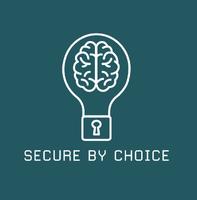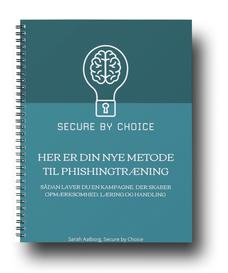Informationssikkerhed der kan mærkes
– og gør en forskel.
Skab en sikkerhedskultur, der virker i virkeligheden
Jeg hjælper organisationer med at gøre IT-sikkerhed menneskelig, så medarbejdere handler sikkert i stedet for bare at vide, hvad de burde gøre.
Informationssikkerhed kedeligt...?
Ikke med mig!
Som sikkerhedsnørd med en forkærlighed for klar kommunikation hjælper jeg organisationer med at gøre komplekse risici konkrete, menneskelige og til at handle på.
Uanset om jeg holder foredrag, underviser eller skriver, er mit mål det samme:
At få sikkerhedsbudskaber til at trænge igennem – uden løftede pegefingre, men med energi, humor og virkelighedsnære eksempler.
Hvis du er træt af sikkerhedsinitiativer, der dræber opmærksomheden, og tekster, ingen forstår – så er vi et godt match.
Sikkerhed handler sjældent om teknik og næsten altid om mennesker
Mit arbejde kombinerer viden om hjernen, risikoperception og kommunikation, så du kan skabe adfærd, der beskytter organisationen.
Jeg kalder det risiko- og adfærdsbaseret IT-sikkerhedskultur og det er langt mere effektivt end traditionel awareness.
Det er det, fordi det bygger på, hvordan mennesker rent faktisk træffer beslutninger og ændrer adfærd.
Vælg den løsning, der passer til lige jeres behov:
Foredrag
Vil du have inspirerende oplæg om hjernen, risiko og sikkerhed?
Disse foredrag er perfekte til ledelse, awareness-dage eller faglige events.
Kurser
Vil du lære, at gøre det selv?
Jeg tilbyder kurser både fysisk og online, alle indenfor IT-sikkerhed, security awareness eller IT sikkerhedskultur.
Rådgivning
Har du brug for hjælp eller rådgivning?
Gennem sparring, workshops eller forløb, får I konkrete værktøjer til at løfte jeres sikkerhedskultur.
Er du i tvivl om, hvor du skal starte?
Book en kort, uforpligtende snak – så finder vi ud af, hvad der passer bedst til jer.

